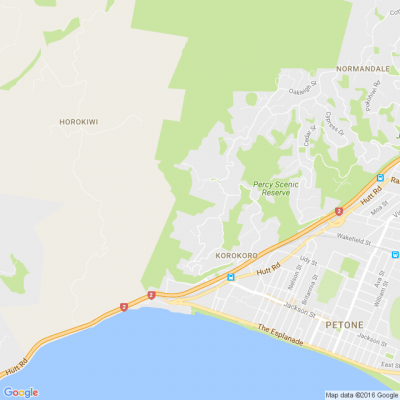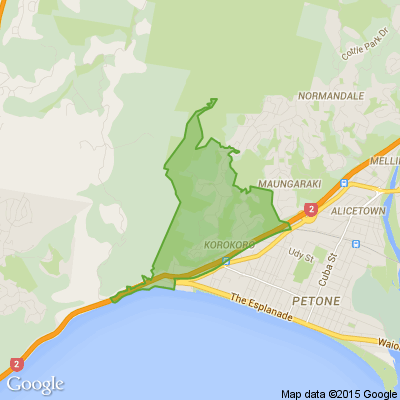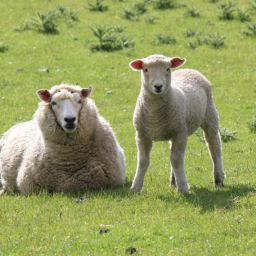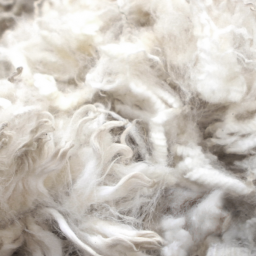Wool is 100% Biodegradable
HOW DOES WOOL BIODEGRADE?
All materials of animal and vegetable origin have some degree of biodegradability, meaning that they are capable of being decomposed by the action of living organisms, such as fungi and bacteria. Wool is composed of the natural protein keratin, which is similar to the protein that makes up human hair. When keratin is broken down naturally by microorganisms, the products do not pose any environmental hazard.
WOOL READILY BIODEGRADES IN MOIST, WARM CONDITIONS
On disposal, if wool is kept warm and moist or buried in soil, fungal and bacterial growths develop which produce enzymes that digest wool. On the other hand, thanks to the unique chemical structure of keratin and wool’s tough, water-repellent outer membrane, clean and dry wool fibres do not readily degrade. This allows wool products to be resilient and long-lasting in normal conditions.
WOOL BIODEGRADES QUICKLY
Wool biodegrades readily in as little as three to four months but the rate varies with soil, climate and wool characteristics. This releases essential elements such as nitrogen, sulphur and magnesium back to the soil, able to be taken up by growing plants. Some studies found more rapid degradation after only four weeks’ burial in soils. Research has shown that processing treatments such as dyeing and anti-shrink treatment can affect the rate of biodegradation in soil, causing an increase in the initial resistance of wool fabric to degradation. However, this is a short-term effect, typically not persisting beyond eight weeks.
WOOL RETURNS ESSENTIAL NUTRIENTS TO THE SOIL
On burial in soil, wool becomes a slow-release fertiliser providing nutrients for uptake and growth by other organisms. Some have even used wool fertiliser to foster herb and vegetable growth. This is known as natural closed loop recycling; restoring the initial inputs of soil and grass. Other beneficial effects of adding wool to soils include enhanced water holding capacity, improved water infiltration, soil aeration and reduced erosion. Ground-up wool carpet, when used as a fertiliser, increased the dry matter yield of grass growth by 24% to 82%.
WOOL DOES NOT ADD TO LANDFILL VOLUMES OR MICROFIBRE POLLUTION
Natural fibres biodegrade naturally in a relatively short period in soils and aquatic systems and therefore do not accumulate in landfill and oceans. Results from a University of Canterbury study demonstrate that wool degrades in a marine environment. In contrast, synthetic textiles persist for many decades and can disintegrate to small fragments. Commonly known as microplastics, or microfibres when less than 5mm in diameter, these fragments accumulate in aquatic environments and land disposal sites where they have negative effects on ecosystems when consumed by organisms. A single polyester fleece garment can produce more than 1900 fibres per wash. Ingestion has a negative impact on organisms, sometimes causing death through starvation as plastic replaces food in the stomach. Once in the food chain, microplastics potentially also affect human health via seafood consumption.
At Curtain Clean we are all about minimising waste and reducing the amount of uncompostable materials going into landfill. Keep in mind that a lot of fabrics can be washed and don't need to be thrown away! Call us on 07 579 0501 if you have something you'd like cleaned, we can treat almost all fabrics.
Begonia house to be demolished at botanic gardens
It's outrageous that the Wellington City Council are going to demolish the Begonia house at the Botanic gardens. This is an asset. One would have thought the green faction of the council would have supported fixing it. It's strange no one has questioned the price required to fix it. Cycle ways more important than begonia house i think not
Sustainable Christmas market
Now on, until 3pm, sat 30 Nov 2024
Forresters Lane, welly cbd (off Tory St, opposite Bunnings)
Including Crazy Creatures hadmade oddies from right here in Newlands!
Home Hosting Sherbrooke Canada
Last week our club hosted eleven people from Quebec for six nights.We had a wonderful time with our French speaking guests.Luckily their English was better than our French.We enjoyed showing them the highlights of Wgtn including Otari reserve,cable car, botanic gardens,waterfront & Te Papa Join our Club and make new friends around the world . in February we will be hosting the club from New York
and in May 2025 our club will visit Taiwan. Wellington Friendship Force facebook for more details.













 Loading…
Loading…

















